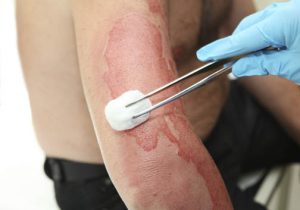I remember my mother’s stories of her sister’s tirades and how my mother seemed to fear I would morph into my deceased aunt every time I got into a Sarah Bernhardt moment as a 9-year-old. When I reflected on my mother’s fearful memories of her sister’s moods and erratic behaviors after I became a psychologist, I decided perhaps, as did several of my cousins who heard similar stories from their parents, that my aunt, though brilliant, was also bipolar.
Bipolar disorder was formerly called manic depression. No matter its name, a person with this mental condition suffers mood swings between depression and states of high anxiety.
However, bipolar individuals do not necessarily display the stereotypical awake-for-nights-on-end activity of the manic artist. In fact, persons with bipolar disorder in the manic, or less extreme hypo-manic state, may be fun, interesting, and full of energy. Yet, the flip side of the coin is depression, irritability, moodiness, and lethargy.
The International Bipolar Foundation lists some signs that might indicate the possibility of bipolar disorder: Does the individual experience racing thoughts? I describe this also as a feeling of a mind in chaos. Is the person easily distracted, lacking concentration? Is there a sense of exaggerated optimism and self-confidence, so that one may appear to have a grandiose or inflated belief about his or her abilities? Is there impulsive or reckless behavior? Poor decision-making? Excessive spending? Irresponsible driving? Sexual promiscuity?
Both young people and adults with bipolar disorder may not know how to understand other people’s moods and behavior and so feel disconnected. Their disconnection precipitates further withdrawal from social interaction.
The corollary to not being able to understand another’s behavior is to create safety by learning how to control others. The International Bipolar Foundation notes how such control can become manipulative of others. My hunch is that my mother experienced control and manipulation by her sister. How might it have been different for both of them if my aunt had had the 21st century medications and psychotherapy to help her manage her illness and allow her to live a more fulfilling life?
For further information about bipolar disorder, for yourself or another, see:
· www.everydayhealth.com/bipolar-disorder/what-is-bipolar-disorder.aspx
· www.nimh.nih.gov/health/publications/bipolar-disorder-in-adults
· ibpf.org (International Bipolar Foundation)
· An Unquiet Mind, by Kay Redfield Jamison
The opinions expressed are those of the author and do not necessarily reflect those of the ownership or management of Chadds Ford Live. We welcome opposing viewpoints. Readers may comment in the comments section or they may submit a Letter to the Editor to: editor@chaddsfordlive.com
About Kayta Gajdos
Dr. Kathleen Curzie Gajdos ("Kayta") is a licensed psychologist (Pennsylvania and Delaware) who has worked with individuals, couples, and families with a spectrum of problems. She has experience and training in the fields of alcohol and drug addictions, hypnosis, family therapy, Jungian theory, Gestalt therapy, EMDR, and bereavement. Dr. Gajdos developed a private practice in the Pittsburgh area, and was affiliated with the Family Therapy Institute of Western Psychiatric Institute and Clinic, having written numerous articles for the Family Therapy Newsletter there. She has published in the American Psychological Association Bulletin, the Family Psychologist, and in the Swedenborgian publications, Chrysalis and The Messenger. Dr. Gajdos has taught at the college level, most recently for West Chester University and Wilmington College, and has served as field faculty for Vermont College of Norwich University the Union Institute's Center for Distance Learning, Cincinnati, Ohio. She has also served as consulting psychologist to the Irene Stacy Community MH/MR Center in Western Pennsylvania where she supervised psychologists in training. Currently active in disaster relief, Dr. Gajdos serves with the American Red Cross and participated in Hurricane Katrina relief efforts as a member of teams from the Department of Health and Human Services' Substance Abuse and Mental Health Services Administration.Now living in Chadds Ford, in the Brandywine Valley of eastern Pennsylvania, Dr. Gajdos combines her private practice working with individuals, couples and families, with leading workshops on such topics as grief and healing, the impact of multigenerational grief and trauma shame, the shadow and self, Women Who Run with the Wolves, motherless daughters, and mediation and relaxation. Each year at Temenos Retreat Center in West Chester, PA she leads a griefs of birthing ritual for those who have suffered losses of procreation (abortions, miscarriages, infertility, etc.); she also holds yearly A Day of Re-Collection at Temenos.Dr. Gajdos holds Master's degrees in both philosophy and clinical psychology and received her Ph.D. in counseling at the University of Pittsburgh. Among her professional affiliations, she includes having been a founding member and board member of the C.G. Jung Educational Center of Pittsburgh, as well as being listed in Who's Who of American Women. Currently, she is a member of the American Psychological Association, The Pennsylvania Psychological Association, the Delaware Psychological Association, the American Family Therapy Academy, The Association for Death Education and Counseling, and the Delaware County Mental Health and Mental Retardation Board. Woven into her professional career are Dr. Gajdos' pursuits of dancing, singing, and writing poetry.
- Web |
- More Posts(250)



Comments